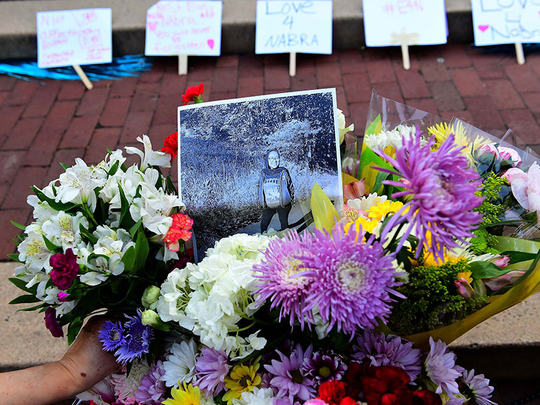
I can’t recall a Ramadan in America during my teens and 20s when I didn’t meet my Muslims friends at IHOP at 3am.
In the wee hours of the morning, over pancakes, eggs and steak, we’d get together for suhour, the meal Muslims share before fasting during the holy month.
It’s an all-American Ramadan ritual. I’ve had suhour at an IHOP in every United States city I’ve lived in: New York, Washington, Ann Arbor, Michigan and in the Bay Area.
On Saturday nights, the restaurant would be crowded with clubgoers recovering from partying, and us: Loud and sober Muslims, trying to make sure we got our orders in before the first light of sunrise, when each day’s Ramadan fast begins. We wouldn’t eat again until sunset.
Those of us who ate strictly halal passed on meat, choosing pancakes and omelettes, and others went for steak and eggs. Sometimes, if I spotted a friend, I’d join a table of clubgoers for a bit, making my way back to share the big stack of chocolate chip pancakes someone would always order on the suhour table.
There was always a responsible member of the group, diligently ordering rounds of water to keep us hydrated through the day of abstaining from all food and drink. As in every coed gathering of adolescents, someone would excitedly take charge of the seating arrangement with hopes of doing some unsubtle match-making.
We’d often be the most visibly diverse table at the restaurant, a snapshot of the second most racially and ethnically mixed religious group in America: Arab-Americans, Afghan-Americans, Iranian-Americans and African-Americans — some of us born there, some brought there as refugees, some who came there to study and others whose great-great-grandparents were brought there on slave ships.
For many Muslim-American teenagers from all backgrounds, those late-night suhour trips are a rite of passage, often the occasion for their first unsupervised late night out with friends.
I don’t know whether that was the case for anyone in the group of teenagers, including 17-year-old Nabra Hassanen in Sterling, Virginia, who were attacked early last Sunday on their way back from an IHOP suhour trip by a 22-year-old man that the police said was motivated by “road rage”. I don’t know whether that night, on the last weekend of Ramadan, Hassanen’s parents had let her go out on her own for the first time.
And after what happened to her, I don’t know whether the US IHOP Ramadan ritual will ever feel the same.
According to the police, Darwin Martinez Torres had a dispute with one of the teenagers whom Hassanen was walking with on their way back from suhour at IHOP around 4am. Torres then followed the group, first in his car and then on foot, striking Hassanen with a metal baseball bat and taking her with him when he left the scene. An hour later, he was arrested. The young woman’s lifeless body was found in a nearby pond.
An hour before Hassanen was attacked, she was praying at her mosque. If she was anything like me and my friends when we were 17, she was probably praying for good grades, mercy for people she had never met far away in war-torn countries and happiness for the people she knew were sad. Or perhaps she spent the night asking for something that no one close to her even knew she wanted.
Her mosque, like mosques in communities around the country, must have been alive during this year’s just-concluded Ramadan with prayers like these, as well as late-night basketball games and groups of youngsters gathering for early-morning food runs.
Later, at IHOP with her friends, I imagine she was having the kind of night that makes up some of my best memories: Laughing under fluorescent nights, surrounded by friends and sugary breakfast foods, and buzzing with the universal thrill of being out in a teenage pack in the wee hours of the morning. But her life was cut short on that walk back from the restaurant before the first sun rays broke through the dark sky.
Police say their investigation “in no way indicates the victim was targeted because of her race or religion”. But whether her killer’s actions are officially characterised as “road rage” or ever described as a “hate crime” won’t change the fact that Muslim spaces — the religious ones and the ones we’ve created — are increasingly under attack. And visibly Muslim women, especially Muslim women of colour, are the most vulnerable.
When I mused about this in a Facebook post, a friend reminisced in a comment about her own Ramadan IHOP runs over the years in Tampa, Florida, New York and Washington, wondering, “Were we always teetering so close to the edge of danger?”
It’s what many of us are thinking. But I don’t want a uniquely Muslim-American tradition to be ruined by fear. As long as young people and pancakes exist, the kind of suhour that made up Hassanen’s final memories will be sacred.
— New York Times News Service
Sahar Habib Ghazi is the managing editor at Global Voices.










